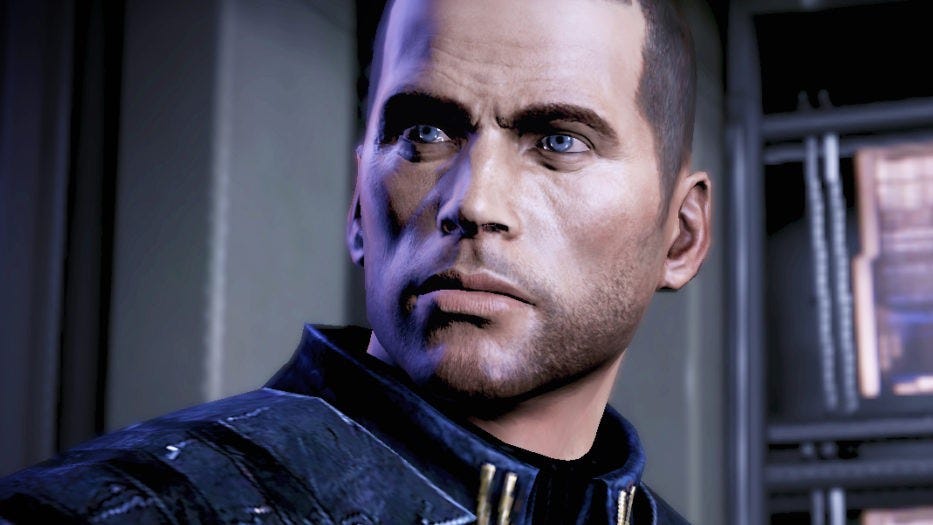The cosmic hum of the Mass Effect universe has echoed across the gaming world for years, leaving an indelible mark on countless players. So, when news of an Amazon Prime Video series emerged, the collective gasp of excitement was quickly followed by a pervasive question: how would they adapt Commander Shepard’s legendary saga? Would they retread familiar ground, risking alienating a fanbase whose personal choices shaped their unique journey? Well, if the latest whispers and reports hold true, we can all breathe a sigh of relief, because the Mass Effect TV series isn’t just retelling Shepard’s story; it’ll boldly navigate new territory, set entirely after the original trilogy. And that, friends, is a stroke of genius.
Beyond Shepard’s Unfinished Symphony
Let’s be honest, the prospect of a direct adaptation of the original Mass Effect trilogy, while tempting on paper, was always fraught with peril. The very essence of what makes Mass Effect special is player agency. Every major decision, every friendship forged, every sacrifice made, contributed to a deeply personal narrative. How could a linear television series possibly reconcile the myriad of choices players made across hundreds of hours? Would they pick a canon Shepard? Would they disregard beloved character arcs for narrative convenience? The pressure to satisfy everyone while maintaining a cohesive story would have been immense, likely leading to widespread disappointment. As one long-time fan, Sarah Jenkins, shared with us, “Honestly, I’d rather see what happens next than just watch my own choices played out by someone else. The galaxy is too rich for that.” Her sentiment perfectly encapsulates the dilemma.
Attempting to simply recreate the games would not only feel redundant to veterans but also struggle to capture the magic of interactive storytelling. The original trilogy stands as a monumental achievement in gaming, and sometimes, the best way to honor a masterpiece is to build upon its legacy, not simply repaint it.
A Galaxy Rebuilt (or Still Broken)
Setting the series after the original trilogy opens up a veritable galaxy of narrative possibilities. Imagine a universe grappling with the direct consequences of the Reaper War. What does a galaxy look like after such an apocalyptic event? How have the different species, once united against a common foe, adapted to peace? Or have new conflicts emerged from the ashes of the old? We could explore the political landscape of a post-Reaper Citadel, the ongoing struggle of worlds ravaged by conflict, or the emergence of new technologies and philosophies born from the crucible of war.
This approach allows the showrunners to craft entirely new characters, new mysteries, and new threats, all while operating within the rich, established lore of Mass Effect. It respects the player’s past choices by acknowledging the impact of the trilogy’s conclusion without being beholden to any one specific ending. The universe itself is the canvas, and the aftermath of the Reaper War provides an unparalleled opportunity for fresh storytelling. We could see the rise of new heroes and villains, exploring themes of reconstruction, memory, and the lasting scars of galactic trauma.
The Canvas of Consequences
This creative decision isn’t just an avoidance tactic; it’s an intelligent embrace of potential. By moving forward, the Mass Effect series can delve into the lasting legacy of the Reapers and the choices made to stop them. It can explore the social and political reverberations across the Milky Way. What about the Rachni? What became of the genophage cure? How did Synthetic and Organic life integrate or clash after the war? These are not mere side quests but rich narrative veins waiting to be mined. This series has the chance to show us a galaxy that is both familiar and utterly transformed, giving fans a reason to invest in new characters and their struggles, rather than just waiting to see how a known story concludes.
Ultimately, this decision to set the Mass Effect TV series post-trilogy is more than just a smart move; it’s a declaration of ambition. It tells us that the creators understand the soul of Mass Effect lies not just in Shepard’s journey, but in the vast, intricate universe they inhabited. It promises a show that can stand on its own, adding new chapters to a beloved saga rather than merely re-reading old ones.




